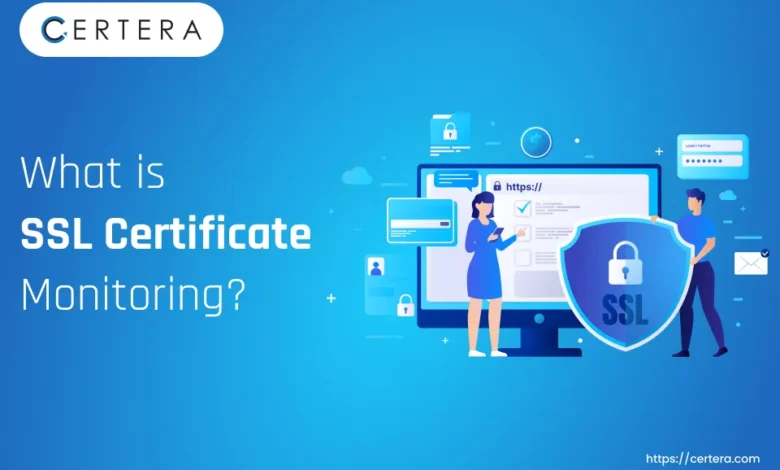The Importance of Regular SSL Monitoring for Online Stores

Running an online store involves more than just listing products and accepting payments. Security plays a crucial role in the overall success and credibility of your business. One of the essential elements of online security is the SSL certificate, which ensures encrypted communication between the user’s browser and your website. However, even if your store uses HTTPS, you can’t just set it and forget itSSL Monitoring is key to keeping your site and customers secure.
SSL certificates can expire, be misconfigured, or become invalid without notice. When that happens, your store may display security warnings to users, or worse, become inaccessible altogether. For e-commerce businesses, this could result in lost revenue, damaged trust, and poor search engine rankings.
Let’s explore why regular SSL monitoring is essential for any online store and how it can help you maintain continuous trust, security, and performance.
What Is SSL and Why Does It Matter?
SSL stands for Secure Sockets Layer. It’s a digital certificate that encrypts the data transferred between a user’s browser and the server. When active and valid, it turns your website URL from HTTP to HTTPS and displays a padlock icon in the browser address bar.
For online stores, SSL is not optional. Customers need to feel confident when entering sensitive data like credit card numbers, passwords, and personal information. Google also considers HTTPS a ranking factor, meaning having a valid SSL certificate can directly affect your site’s visibility.
What Is SSL Monitoring?
SSL monitoring is the process of continuously checking the status and health of your website’s SSL certificate. It ensures that your certificate is valid, properly installed, and not close to expiring. Advanced monitoring tools send alerts if something goes wrong giving you time to fix issues before your customers are affected.
Here’s what SSL monitoring typically checks:
Certificate expiration dates
Mismatch in certificate name/domain
Certificate authority validity
Encryption strength and settings
Monitoring tools can scan your site every few minutes and notify you through email, SMS, or integrated dashboard systems.
Why Online Stores Need SSL Monitoring
1. Avoid SSL Expiration Surprises
SSL certificates have expiration datesoften one year or 90 days for certain types. If your certificate expires and goes unnoticed, browsers will show warning messages like “Your connection is not private. This can scare users away, reduce sales, and severely hurt your reputation.
With SSL Monitoring, you get advanced notifications before expiry, ensuring you have enough time to renew and reinstall the certificate.
2. Maintain Customer Trust
Trust is everything in e-commerce. A secure and smooth shopping experience is what builds long-term customer relationships. If users see browser warnings about insecure content or an invalid certificate, they’ll likely abandon the purchase and never return.
Regular monitoring ensures that your certificate is always active and properly configured, maintaining a secure and trustworthy interface for your customers.
3. Improve SEO and Site Visibility
Google favors secure websites in its ranking algorithms. A lapse in SSL security could result in temporary drops in your rankings or even lead to deindexing of your pages if they’re deemed unsafe. Monitoring helps you stay ahead of any certificate issues that might negatively impact your SEO efforts.
4. Prevent Revenue Loss During Peak Times
Imagine your SSL certificate expires during a holiday sale or promotional event. The loss in revenue from even a few hours of warning messages or an inaccessible site can be massive. Real-time monitoring prevents such scenarios by catching problems before they become emergencies.
5. Protect Against Misconfigurations
Sometimes, certificates are installed incorrectly or don’t match the domain exactly. These technical issues can lead to security errors. SSL monitoring tools can detect such misconfigurations, allowing you to correct them before they impact users.
Read Also: Fintech Fundraising Mastery: Key Strategies and Emerging Opportunities
How to Implement SSL Monitoring for Your Store
Setting up SSL monitoring is typically a quick process that involves adding your domain to a monitoring service. Here’s how you can do it effectively:
Choose a reliable monitoring tool that offers SSL checks along with uptime monitoring.
Add your website’s URL and configure the monitoring frequency (e.g., every minute or every hour).
Set up alerts via email, SMS, or integration with your incident response tools.
Review SSL health reports regularly to stay updated on certificate status and expiry dates.
Automate certificate renewal if possible, especially if using Let’s Encrypt or similar services.
Best Practices for SSL Management
In addition to regular monitoring, follow these tips to maintain strong SSL security:
Use a reputable Certificate Authority (CA)
Install your certificate correctly and verify across all pages
Avoid mixed content by ensuring all page elements use HTTPS
Use HSTS (HTTP Strict Transport Security) header
Audit your SSL configuration using free tools like Qualys SSL Labs
By combining these practices with continuous monitoring, you create a robust security posture that protects both your store and your customers.
Common Mistakes to Avoid
Even with the best intentions, some site owners make critical SSL mistakes:
Letting certificates expire without renewal plans
Using self-signed certificates instead of trusted CAs
Ignoring browser warnings and misconfiguration alerts
Installing SSL on the main domain but forgetting subdomains
Failing to redirect HTTP pages to HTTPS
SSL monitoring helps eliminate these errors by keeping you informed and proactive.
Conclusion
For online store owners, maintaining security is non-negotiable. Customers expect safe, seamless transactions, and search engines demand compliance with modern security standards. An expired or misconfigured SSL certificate can damage both your revenue and reputation.
That’s why consistent SSL monitoring is a smart, simple step toward long-term success. It’s not just about preventing errors, it’s about actively protecting your business, building trust, and maintaining a professional online presence.
By monitoring your SSL certificate around the clock, you ensure your customers always experience a secure and trustworthy store exactly what they need to feel confident buying from you.
